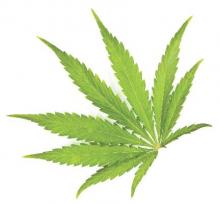New findings suggest childhood trauma and cannabis use disorders have no significant interaction in outcomes for patients with schizophrenia, according to Grégoire Baudin and his associates.
The researchers recruited 366 people aged 15-84 years. Two hundred ninety-five of the subjects (80.6%) met the DSM-IV-TR criteria for schizophrenia, and 71 (19.4%) for schizoaffective disorder. They found that 30.49% of the patients reported at least one significant childhood trauma, and 13.77% reported two or more. The proportion of patients reporting childhood traumas were comparable by gender; 33.78% of women and 33% of men reported at least one trauma. The differences between those rates were not statistically significant (P = 0.449), the researchers reported. Among patients with cannabis use disorders, 99 (27.05%) had a lifetime diagnosis of cannabis use disorder. This diagnosis significantly predicted age of onset, age at first hospitalization, and Medication Adherence Rating Scale scores.
Overall, no significant interaction was found between childhood trauma and cannabis use disorders. However, after adjustment for age and gender, a correlation was found (P = 0.004). But “the proportion of patients with a history of trauma among subjects with and without cannabis use disorders did not significantly differ,” the researchers wrote (P = 0.278).
“Our results emphasize the need for clinicians to systematically inquire about the traumatic history of patients with psychotic disorders, and consider trauma-focused therapy” for people with schizophrenia and those at risk, researchers concluded.
Read the full study in Schizophrenia Research (doi: 10.1016/j.schres.2016.04.042).


